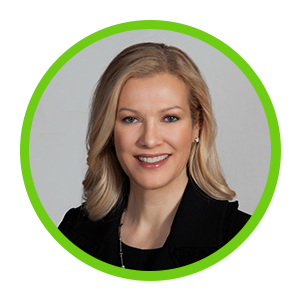Using stewardship to bridge the legacy gap

In financial services, there are many homonyms – words with multiple meanings – and one that is often used is ‘legacy.’
We talk to clients about passing on wealth or leaving the planet in a better state for future generations – leaving a ‘legacy.’
At the same time, we also refer to legacy businesses or legacy offerings, perhaps referring to service offerings or services delivered in a manner that isn’t wholly aligned with the evolving views or direction of an organisation.
For example, we speak to a lot of wealth managers who offer ‘conventional’, ‘ESG’, or ‘sustainable’ portfolios. We can’t help but wonder whether ‘conventional’ portfolios, that exist either due to disengagement, choice or tax reasons, will in fact become ‘legacy’ offerings.
We’d argue that assessing ESG risk factors and active stewardship are baseline expectations in today’s market – there will become no differentiation between ‘conventional’ and ‘ESG’ portfolios.
So, how can we, as an industry, bridge the gap between these two meanings of ‘legacy’ to bring them closer together?
When thinking about our legacy and how we preserve the wellbeing and wealth of our people and planet, we must consider long-term, systemic risks – like climate change. These risks are hard to measure with traditional investment metrics. We think the answer lies in stewardship – which is one of the powerful, if not the most powerful tool we have to ensure our legacy is one to be proud of.
What is stewardship?
Put simply, it’s a means of making sure your seat at the proverbial table is used to its full force. Effective stewardship takes a two-pronged approach:
- Engagement: Discussing ESG issues with companies or fund managers to improve their handling, including disclosure, of such issues. This can be done individually or in collaboration with other investors.
- Voting: Formally expressing approval or disapproval through voting on resolutions and proposing shareholder resolutions on specific ESG issues.
Fund managers have direct dialogue with the companies they invest in, and therefore represent the voice of their many (and varied) underlying investors. For asset owners, including wealth managers, the role is not to engage with underlying companies directly; instead, it’s to have an active conversation with fund managers and to assess their delivery of stewardship on the ground – both in terms of voting and engagement.
Why now?
It’s estimated that between now and 2027, there’ll be a £1trn intergenerational wealth transfer in the UK, and this figure is set to increase to £5.5trn over the next 30 years. Therefore, investing assets in line with the long-term horizon that will matter to this younger generation has never been more crucial. And that requires consideration of the systemic risks that affect our clients’ financial prosperity, as well as the prosperity of our planet.
We’ve seen a growing trend for sustainable funds, with the number of such products available in the UK up from 46 in 2005 to a whopping 167 in 2021. Still, the traditional approach of excluding companies or industries conventionally viewed as less-climate-friendly or socially questionable industries, simply passes the problem onto others.
Such a blunt tool can often ignore the transformative powers such companies can hold in driving the transition to net zero. In some cases, this approach can also significantly harm investor performance, as illustrated by the repricing of fossil fuel assets amid the Russian war in Ukraine.
On the other hand, stewardship offers the opportunity for clients to remain exposed across the economy – benefitting performance – while simultaneously driving the real-world change required to help shape the future economy.
Seeing the wood from the trees
In a typical global equity fund, a fund manager may take positions in c.100 companies. Each company might have around 15 resolutions a year (this number is primarily driven by local law and therefore varies a lot between countries).
For wealth managers to effectively hold their chosen fund managers to account, they must be able to look through the weight of voting activity (often tens of thousands of individual resolutions across a suite of portfolios) and focus the discussion on the issues that really matter to end-clients, at the companies with the greatest risk exposures and to which they themselves have the most significant investment exposure.
Why is this important? Well, if you have funds voting on the same resolution in opposite ways, you’ve diluted the power of your seat at the table and made zero impact. Worse still, if you run sustainable portfolios, do you know whether your chosen fund managers are voting in line with your portfolio objectives?
As the saying goes, nothing worth doing in life is easy. But there are ways to collate, analyse and act on the available voting data. Through harnessing this, we’ve found it possible to influence fund managers’ approaches through close analysis and carefully argued calls for change and improvement.
Bridging the legacy gap
Contrary to some investors’ beliefs, it’s not necessary to sacrifice our planet's wellbeing for financial performance. Effective stewardship can help deliver real-world change while allowing clients to remain invested across the economy.
For wealth managers, having a more robust oversight of fund managers’ stewardship practices – and actively engaging with them to ensure clients’ views are heard – can help bridge the legacy gap so that all investors benefit, addressing the systemic risks that matter to your clients over the time horizons they’re invested.
Together, let’s make our 'legacy' leaving better financial outcomes on a prosperous planet for generations to come.
Under the spotlight: Sylvia Pozezanac
 Sylvia Pozezanac joined Redington in April 2022 as Chief Executive Officer (CEO) and Board Member. As CEO, Sylvia leads Redington’s continued growth and strategic expansion in existing and new markets.
Sylvia Pozezanac joined Redington in April 2022 as Chief Executive Officer (CEO) and Board Member. As CEO, Sylvia leads Redington’s continued growth and strategic expansion in existing and new markets.
Sylvia's career spans more than 30 years, with international experience in retirement, investment consulting and insurance. An experienced senior executive, Sylvia has held leadership roles in the UK, the US and Canada, in both regulated and non-regulated entities.
Prior to joining Redington in 2022, Sylvia spent three years at Mercer as UK President and CEO where she successfully led Mercer’s UK integration of the acquired JLT employee benefits operation. Sylvia spent six years at Prudential Financial in the US, most recently as Senior Managing Director for Prudential Client Management, leading Prudential's strategic C-suite global financial partner and key client engagement program. Prior to this, Sylvia spent 26 years at predecessor organisations of Willis Towers Watson. During that time, she held several leadership roles spanning its Retirement and Risk businesses in multiple geographies across the US and Canada, including leading Towers Perrin's pension de-risking business, as well as the sales and marketing organisation for Retirement North America following the Towers Perrin and Watson Wyatt merger.
Sylvia has a bachelor of sciences, mathematics, from Concordia University, Canada, and is a Fellow of both the Canadian Institute of Actuaries, the Society of Actuaries and an Enrolled Actuary under ERISA.
Sylvia Pozezanac is a part of our amazing IMpower 2023 speaker faculty. Don't miss out on her session 'The CEO, CIO and bank leader perspectives on the changing purpose of the industry' on the 27th of June, 2023.
Find out more about the 2023 agenda here >>
